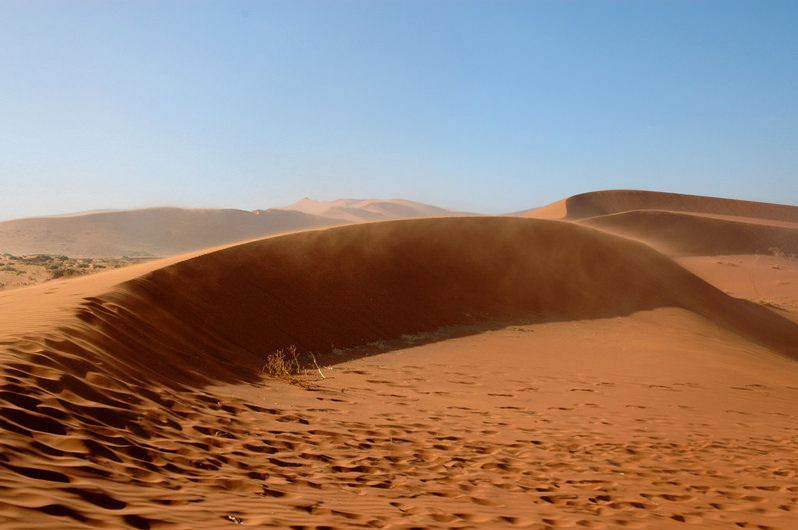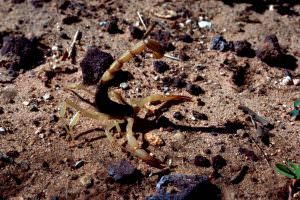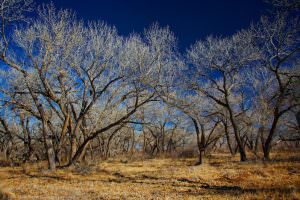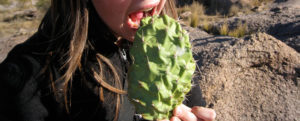Transborder Immigrant Tool Series: How to Wait Out the ‘Temper Tantrum’ of a Sandstorm
The eighth poem in "The Desert Survival Series / La serie de sobrevivencia del desierto" provides crucial tips the desert traveler can use as the sand turns to "sandpaper" and the heat suffocates during a journey across the Mexico-US border The eighth poem in "The Desert Survival Series / La serie de sobrevivencia del desierto" provides crucial tips the desert traveler can use as the sand turns to "sandpaper" and the heat suffocates a journey across the Mexico-U . The eighth poem in "The Desert Survival Series" opens with an old story about the Persian army being lost in Egypt. (Flavia / CC BY 2.0)
The eighth poem in "The Desert Survival Series" opens with an old story about the Persian army being lost in Egypt. (Flavia / CC BY 2.0)
The eighth poem in “The Desert Survival Series” opens with an old story about the Persian army being lost in Egypt. (Flavia / CC BY 2.0)
The Transborder Immigrant Tool is a GPS cellphone safety-net tool for crossing the Mexico-U.S. border. It was developed by Electronic Disturbance Theater/b.a.n.g. lab in 2007 by artists Micha Cárdenas, Amy Sara Carroll, Ricardo Dominguez, Elle Mehrmand and Brett Stalbaum, in conjunction with CALIT2/Visual Arts Department/University of California, San Diego/Program in American Culture, Latina/o Studies/English Department/University of Michigan, Ann Arbor.
Poet Amy Sara Carroll wrote a series of 24 poems titled “The Desert Survival Series / La serie de sobrevivencia del desierto,” which were uploaded onto cellphones equipped with simple compasses and interfaces. Each poem is a form of lyrical advice that provides readers and listeners with tools for every hour of a day spent in the pernicious borderlands between the U.S. and Mexico. Truthdig is publishing these poems in Spanish and English in our Poetry section, accompanied by bilingual audio recordings. To read the first, second, third, fourth, fifth, sixth and seventh poems in the series, click on the hyperlinks. For more information on the project, watch the video presentation below.
The eighth poem in “The Desert Survival Series/La serie de sobrevivencia del desierto,” read in English by Amy Sara Carroll and Spanish by Ivan Chaar-Lopez.
8.
According to Herodotus, King Cambyses, twenty-five hundred years ago, lost his entire Persian army (fifty thousand men) in an Egyptian sandstorm. Deserts guard their secrets; no archaeological evidence corroborates Herodotus’s account. Sudden, local haboobs–sometimes the result of thunderstorms’ cool air outflows–still menace desert travelers. Instruments in the Mojave Desert have clocked wind speeds up to one hundred sixty kilometers per hour. In a sand or dust storm, heat suffocates; winds transubstantiate the landscape into unidentified flying objects. Sand becomes sandpaper against the skin. Turn your back to the wind. Lie on your side against a hill or dune. Wrap your face. Cover your nose and mouth. Tuck your eyeglasses into your shirt or jacket pocket (so the wind will not etch its soliloquies into them). Wait it out. No Godot, a sandstorm will go the way of a temper tantrum.
Según Heródoto, el rey Cambises perdió todo su ejército persa (cincuenta mil hombres) en una tormenta de arena egipcia hace dos mil quinientos anos. Los desiertos guardan sus secretos; no hay evidencia arqueológica que corrobore la version de Heródoto. Repentinos haboobs locales–a veces el resultado de las corrientes de aire frÃo generadas por las tormentas eléctricas–todavÃa amenazan a los viajeros del desierto. Los instrumentos en el desierto de Mojave han registrado velocidades de viento de hasta ciento sesenta kilómetros por hora. En una tormenta de arena o polvo, el calor sofoca; los vientos transubstancian el paisaje en objetos voladores no identificados. La arena se convierte en papel de lija contra la piel. De la espalda al viento. Acuéstese de costado contra un cerro o duna. Cubra su cara. Tápese la nariz y la boca. Guarde sus lentes en su camisa o en el bolsillo de la chaqueta (para que el viento no grabe sus soliloquios en ellos). Espere a que pase. Ningún Godot, una tormenta de arena seguira el camino de un berrinche.
Independent journalism is under threat and overshadowed by heavily funded mainstream media.
You can help level the playing field. Become a member.
Your tax-deductible contribution keeps us digging beneath the headlines to give you thought-provoking, investigative reporting and analysis that unearths what's really happening- without compromise.
Give today to support our courageous, independent journalists.






You need to be a supporter to comment.
There are currently no responses to this article.
Be the first to respond.